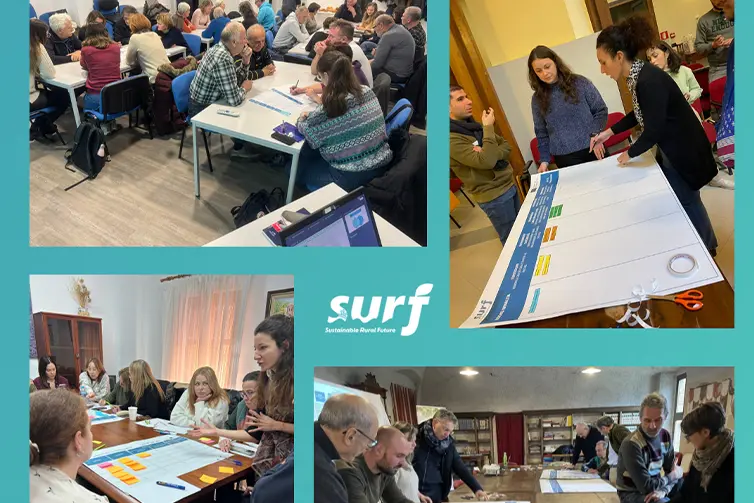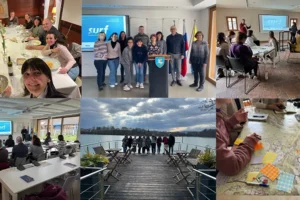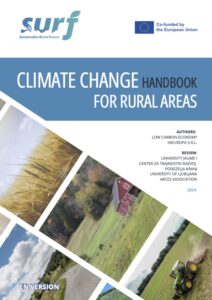n December 2024 and January 2025, the project partners held 4 local workshops (two in Italy organised respectively by InEuropa in the area of Brescia flatland and by ARCES in Palermo, one in Slovenia organised by University of Ljubljana and CTRP in Kranj and one in Spain organised by LCEF in Azuébar) within the framework of the Work Package 2, dedicated to improve the knowledge about climate change adaptation in rural areas, in addition to involving the community to detect their challenges. The workshops aimed at understanding how to identify local risks, vulnerabilities and challenges in rural areas, and how to point out opportunities and solutions to implement effective adaptation strategies.
They included a variety of participants from rural communities, specifically entrepreneurs and professionals involved in local development and environmental/farming field, members of local associations (environmental, territorial development, eco-tourism, Slow food), university researches and students, youth workers and public administrators. The different backgrounds of the participants allowed community members to come together and share their perspectives and experiences with local issues related to climate change.
After an initial introduction to the SURF project and its objectives, the workshops delved theoretically into some of the main concepts of climate change adaptation and then got into the practical work, where participants, divided into groups, discussed and worked together to identify risks, specific vulnerabilities both in terms of sensitivity and adaptive capacity and challenges (not only environmental, but also social and economic) with reference to their rural area. The workshops process helped highlight opportunities and solutions to develop and implement effective adaptation strategies.
The overall experience was very positive, participants underlined how a greater public awareness of these issues is essential and appreciated the reflective group activity, and particularly the collective debriefing with the open dialogue.




